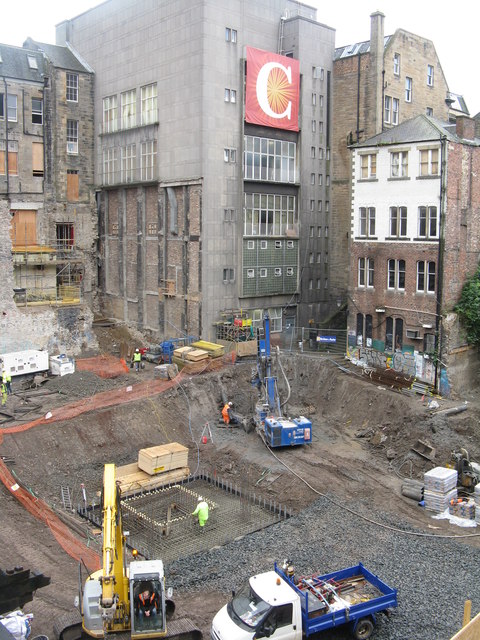The opening of a new hotel in Edinburgh has been delayed after an extensive archaeological dig revealed evidence of a 1,000-year-old city.
The excavation, taking place on the site of Richard Branson’s first Virgin Hotel in Cowgate, has lasted for more than a year due to the range of ancient Medieval items that have been discovered.
According to archaeologists, these items date back to pre-Medieval times in the 10th Century. These included a human skull, a drinking vessel, shoes, jewellery and tools, as well as a ball used in a giant catapult and a cannonball.
Also discovered on the hotel site were the remains of buildings that predated even the nearby Edinburgh Castle and the town burgh by David I by around 200 years. Groundworks also unearthed a wall panel, rubbish pits, wells, hearths and structural timbers.
The discovery has pushed back the completion of the hotel by up to a year, resulting in a 2021 opening. However, archaeologists have predicted that the significance of the find could boost the popularity of the hotel when it eventually opens its doors to customers.

Commenting on the medieval find, John Lawson archaeologist for Edinburgh City Council, stated that it was one of the most significant urban excavations that has ever been undertaken in Scotland.
“We have found everything we could have probably hoped to find on an excavation like this. There was basically 1,000 years of archaeology on the site,” he said. “The full analysis and research has still has to be done, but the results of the work have been tremendous, in terms of scale and quality, and the quality of preservation is outstanding.
“For the first time ever, we have found a series of buildings which pre-date the formation of the medieval town in the 12th century. There are a great sequence of layers on the site, which almost tell the story of Edinburgh in microcosm.”
Raul Leal, chief executive of Virgin Hotels, added that while the company is keen to proceed with the construction of the hotel, it is also excited to be part of such an important moment in the city’s history.
“We’re proud to have played a part in work of such national importance. We will look at ways we can inform our guests of the rich history beneath the rooms.”
